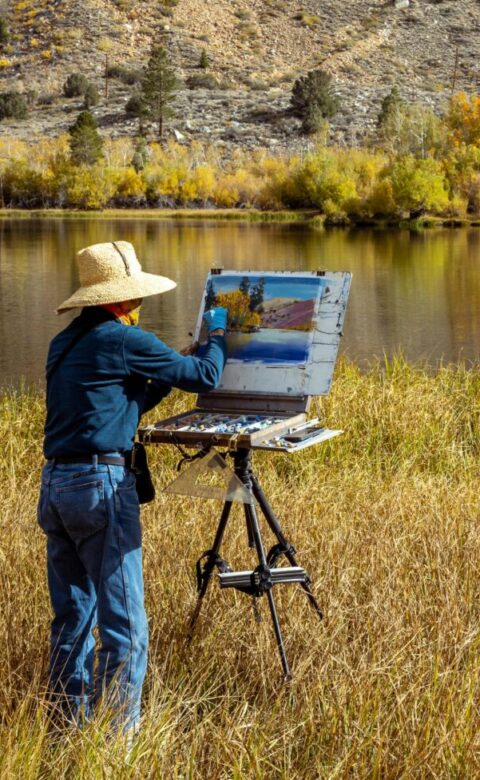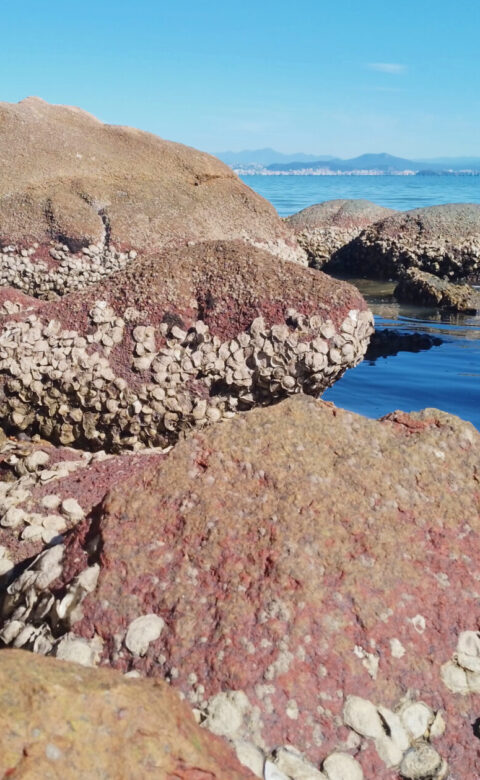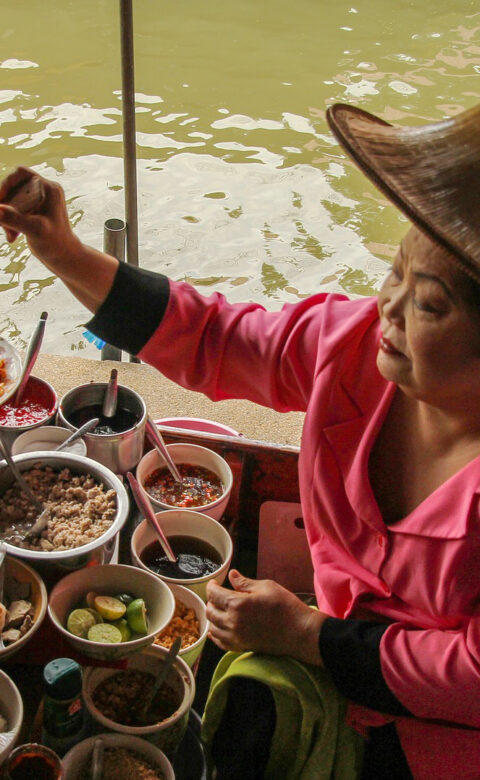It’s a stretch to think that everyone can enjoy holidays and travel experiences without encountering single-use plastic along the way, although we’re edging closer to that possibility. There are many things we can do ourselves to avoid single-use plastic when travelling — and thankfully, more and more businesses are realising that people want to be able to do this and are making it easier — but there’s still a way to go.
We try to travel as light as possible nowadays and single-use plastic certainly facilitates that, which is why it can be such a challenge to overcome. Not to mention that once you have consumed a product wrapped or served in plastic, you can simply throw the packaging away. It´s less to carry and less to worry about, particularly when travel can be stressful enough without trying to find the water refill point in an airport or somewhere to wash your reusable straws and cutlery. However, those of us that are determined to do this, can employ several strategies to do our very best to travel without plastic.
Be prepared. Just as you might make a shopping list before heading to the supermarket, make a list of items that you can pack or things that you can do to help you to travel without plastic before you set off on your journey. For example:
- Find out if tap water is safe to drink in the destination(s) you are travelling to and prepare accordingly (see ‘Eating and Drinking’ below).
- Pack your own shopping bags — those that fold up really small and are often attached to a keyring are great in terms of size and weight, and you can clip them to your trousers/shorts/backpack so they’re always easy to get at.
- Invest in a reusable cutlery and straw kit and add a small refillable bottle of washing-up liquid or powder to this kit, so you can easily wash any reusable items on the go. Powders are great as you won’t need to remove them for security checks.
- Take your own solid bar toiletries, rather than packing travel-size toiletries or using mini toiletries provided in hotels. They are really lightweight, and they don’t need to go in a clear bag at security control; so they come with lots of additional benefits. As well as solid shampoos, you can take solid face wash bars, and even solid bar moisturisers. Carrying these in cork containers is a good idea, so that if you need to pack them when wet you don’t have any problems. Take care with solid deodorants and moisturisers if you travel in hot climates as they may melt and spill when you open the container.

Eating and Drinking
In some cases, bottled water might still be recommended because tap water is unpleasant to drink, but you can overcome this by travelling with a reusable filter bottle of your own or by carrying a SteriPen to treat the water. This also saves a lot of money — after using your reusable bottle around 10-15 times you will have already paid off the investment, especially when you think of the price of a bottle of water in an airport!
You can check the website of the accommodation where you are thinking of staying to see if there are images of water dispensers on site, or if they talk about making refill easy — you might even consider emailing them to find out.
Or you can also download the local refill app to find restaurants, bars, cafés, hotels and transport hubs that offer water refills in your destination. As a rule, locally-based apps usually have a lot more information on them. This one by The Cleanwave Foundation is a good example in Mallorca.
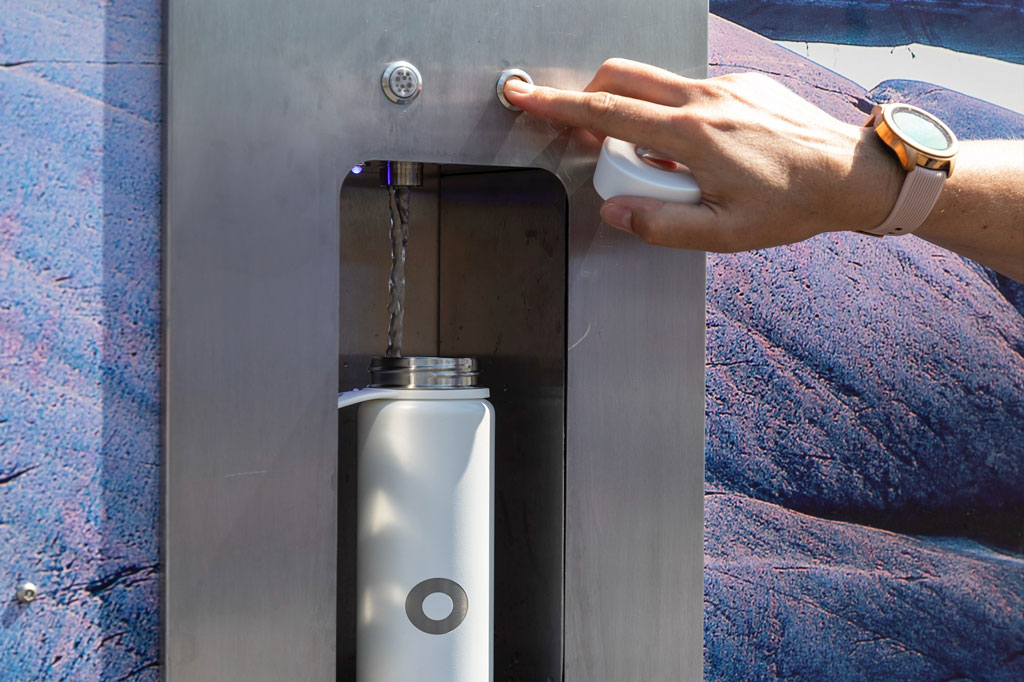
The world consumes billions of single-use coffee cups a year, and because 99% of them are lined with single-use plastic (this prevents the contents from leaking out), it means that they are not usually recycled as this is a very expensive process. Most single-use coffee cups will go to landfill or incineration even if you have separated them. Carrying your own reusable cup for hot drinks means you can be part of the solution. When travelling in some countries, the large reusable cups don’t fit under the coffee machines in airports, so it might be wise to carry the smaller size. Collapsible cups are also great for saving space in your hand luggage.
Whilst it’s tempting to save time by eating and drinking on the go, this creates waste that is very unlikely to be recycled. Choosing to sit down and ‘eat in’ should mean that you are served with reusable crockery and cutlery, and it’s a great opportunity to unwind, watch the world go by, create some content for Instagram and savour local flavours. In some destinations, takeaway food comes in local ‘packaging’ like banana leaves which can be disposed of with organic waste, or you might even choose to travel with your own wax wraps or reusable food containers so you can ask cafés and restaurants to avoid using packaging altogether by placing the items directly into your own containers.
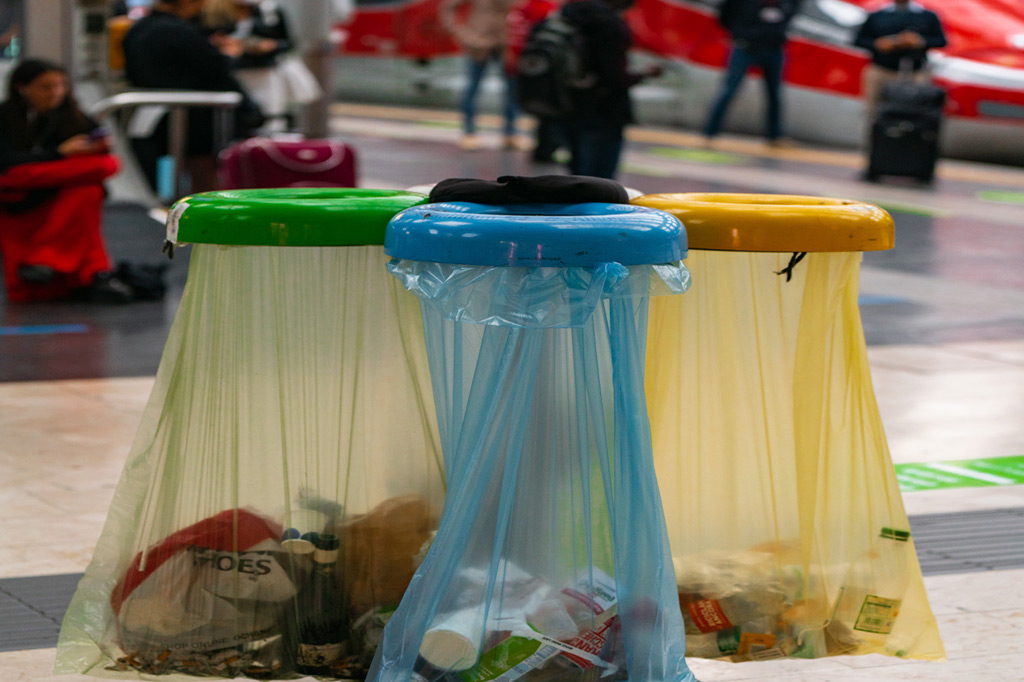
Responsible Disposal of Waste
Whether you’re moving around various countries and municipalities or you’re staying put in one particular place, the chances are that the way waste is disposed of is going to be different to how you do it at home. Make an effort to find out what types of waste can be separated for recycling and if there are different coloured bins in the destination; find out what is supposed to be deposited into each of them so you can play your part.
If there are no recycling facilities, take every opportunity to make sure that your waste doesn’t become pollution — so for example, dispose of lightweight plastic items into bins with lids so that the plastic can’t easily blow away.
You might even go a step further and join a clean-up activity. Many destinations have charities and organisations that arrange regular beach and environment clean-ups. Ask around during your travels to find out if one is happening that fits into your schedule. It might also help to be aware of ‘World Days’ such as #WorldEnvironmentDay (5th June) and #WorldOceansDay (8th June). There are always activities going on somewhere themed around dates like these, and there are lots more in the annual calendar. You can download a free World Days calendar here.
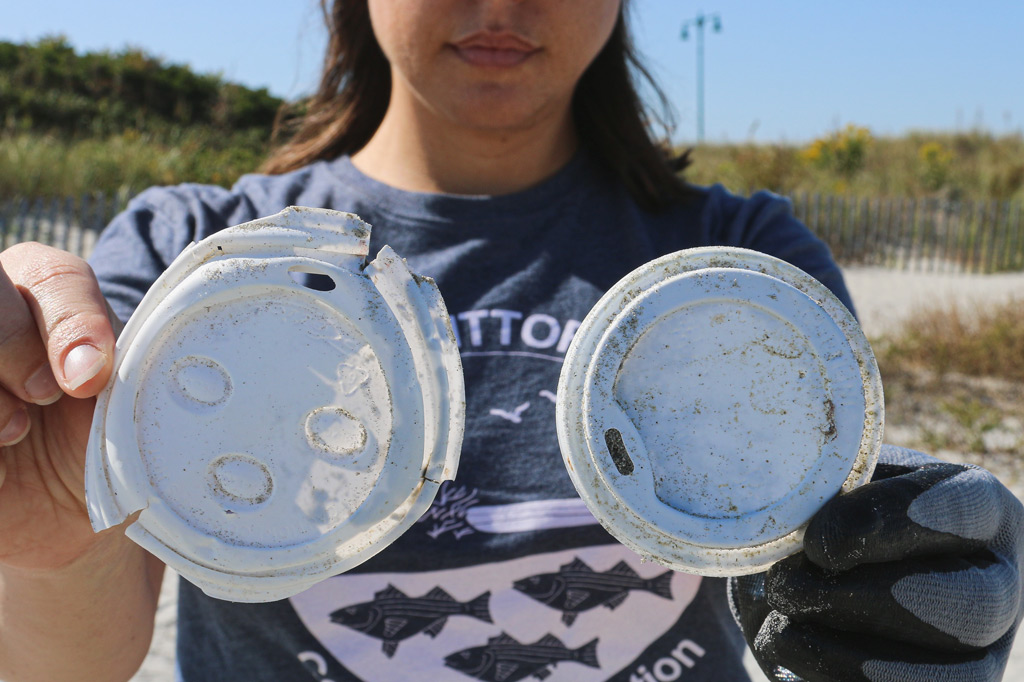
Be a Driver of Change
Finally, let businesses know you don’t want to see single-use plastic. Many hotel managers truly believe that guests still want things like miniature hair combs, cotton buds and shower caps in rooms when more often than not, people would prefer not to have them. Rather than checking out without saying anything, you could leave a polite note or have a conversation with staff to let them know you would prefer hotels to avoid single-use plastics if possible. You can also express this through on-site or online feedback forms. The more often accommodation providers hear this from their guests, the more likely they are to consider changing.
When you travel, if you see good or bad examples, share them on your social media to raise awareness with other travellers and businesses — and use this influence for good by getting the message out that we would all prefer to travel without plastic.


